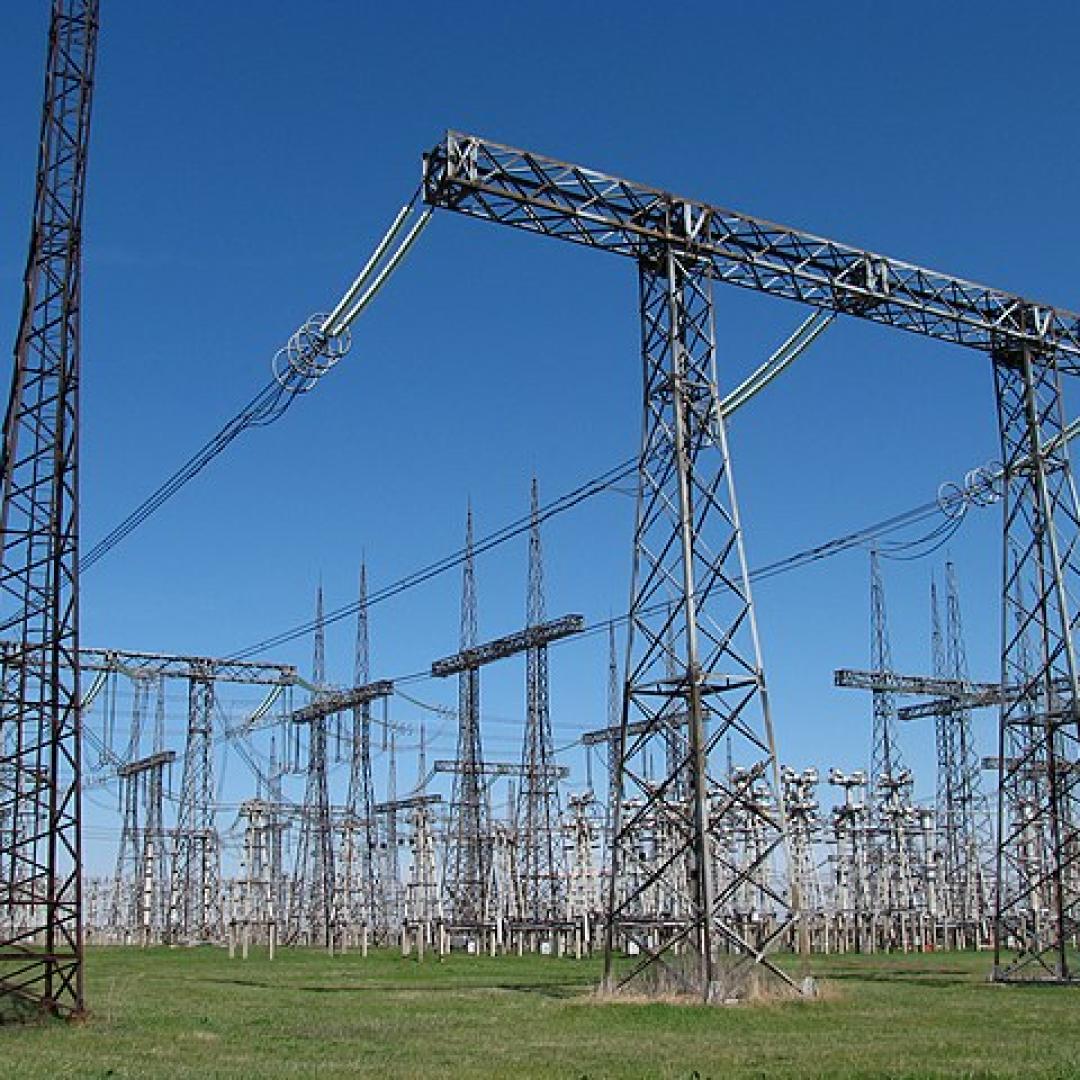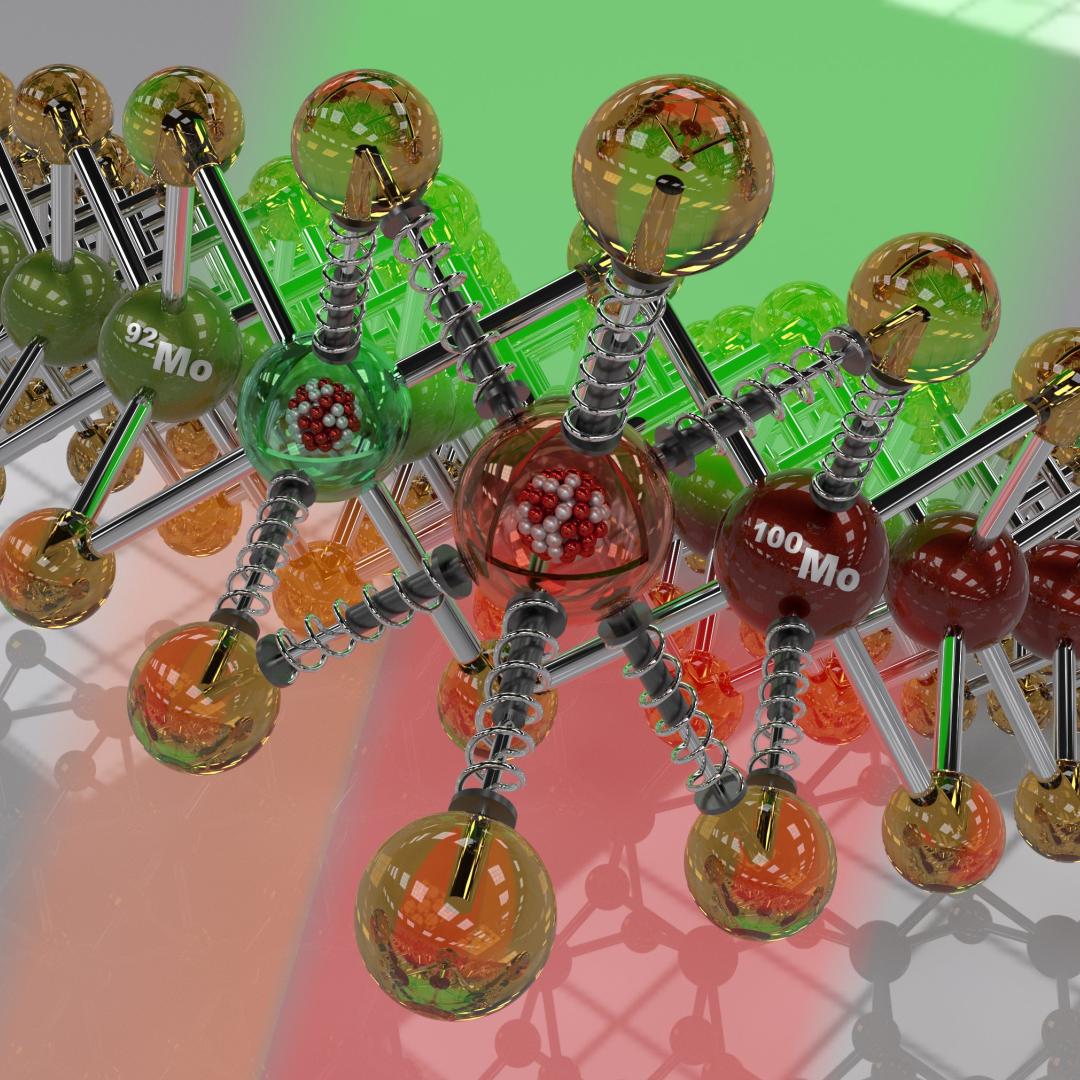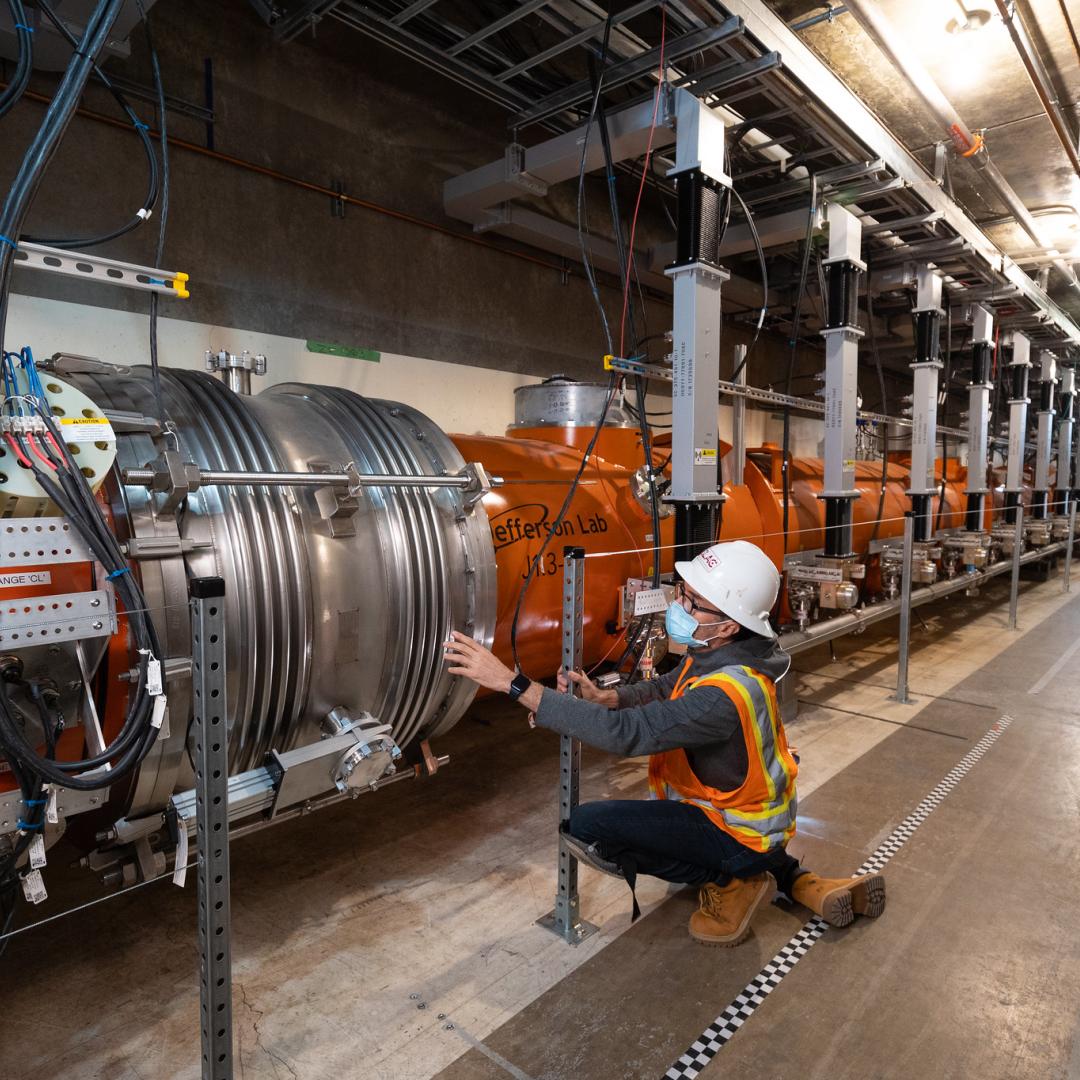Filter News
Area of Research
- Advanced Manufacturing (1)
- Biology and Environment (30)
- Biology and Soft Matter (1)
- Clean Energy (45)
- Computational Biology (1)
- Computational Engineering (1)
- Computer Science (6)
- Electricity and Smart Grid (1)
- Fuel Cycle Science and Technology (1)
- Functional Materials for Energy (1)
- Fusion and Fission (3)
- Isotopes (1)
- Materials (18)
- Materials for Computing (2)
- National Security (43)
- Neutron Science (10)
- Nuclear Science and Technology (1)
- Supercomputing (46)
- Transportation Systems (1)
News Topics
- (-) Artificial Intelligence (84)
- (-) Decarbonization (73)
- (-) National Security (56)
- 3-D Printing/Advanced Manufacturing (116)
- Advanced Reactors (33)
- Big Data (50)
- Bioenergy (88)
- Biology (96)
- Biomedical (58)
- Biotechnology (21)
- Buildings (54)
- Chemical Sciences (59)
- Clean Water (29)
- Climate Change (94)
- Composites (25)
- Computer Science (182)
- Coronavirus (46)
- Critical Materials (24)
- Cybersecurity (35)
- Education (3)
- Element Discovery (1)
- Emergency (2)
- Energy Storage (106)
- Environment (192)
- Exascale Computing (34)
- Fossil Energy (5)
- Frontier (39)
- Fusion (52)
- Grid (59)
- High-Performance Computing (82)
- Hydropower (11)
- Irradiation (3)
- Isotopes (46)
- ITER (7)
- Machine Learning (44)
- Materials (140)
- Materials Science (134)
- Mathematics (6)
- Mercury (12)
- Microelectronics (2)
- Microscopy (50)
- Molten Salt (8)
- Nanotechnology (60)
- Net Zero (11)
- Neutron Science (129)
- Nuclear Energy (103)
- Partnerships (40)
- Physics (58)
- Polymers (31)
- Quantum Computing (28)
- Quantum Science (65)
- Renewable Energy (2)
- Security (23)
- Simulation (43)
- Software (1)
- Space Exploration (24)
- Statistics (3)
- Summit (57)
- Sustainable Energy (119)
- Transformational Challenge Reactor (7)
- Transportation (93)
Media Contacts
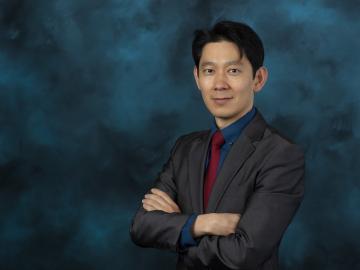
Researchers at ORNL are using a machine-learning model to answer ‘what if’ questions stemming from major events that impact large numbers of people. By simulating an event, such as extreme weather, researchers can see how people might respond to adverse situations, and those outcomes can be used to improve emergency planning.
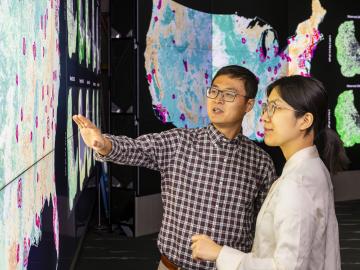
Scientists at ORNL completed a study of how well vegetation survived extreme heat events in both urban and rural communities across the country in recent years. The analysis informs pathways for climate mitigation, including ways to reduce the effect of urban heat islands.
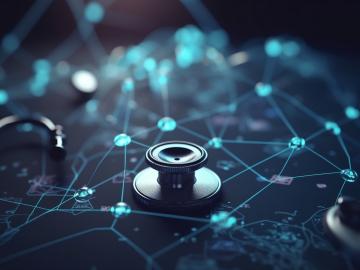
To balance personal safety and research innovation, researchers at ORNL are employing a mathematical technique known as differential privacy to provide data privacy guarantees.
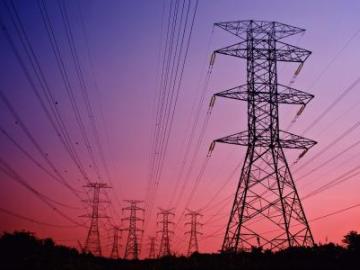
Groundbreaking report provides ambitious framework for accelerating clean energy deployment while minimizing risks and costs in the face of climate change.
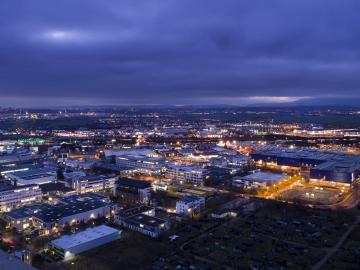
Scientists at Oak Ridge National Laboratory and six other Department of Energy national laboratories have developed a United States-based perspective for achieving net-zero carbon emissions.

The U.S. Environmental Protection Agency has approved the registration and use of a renewable gasoline blendstock developed by Vertimass LLC and ORNL that can significantly reduce the emissions profile of vehicles when added to conventional fuels.
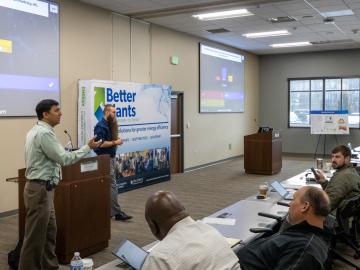
Helping hundreds of manufacturing industries and water-power facilities across the U.S. increase energy efficiency requires a balance of teaching and training, blended with scientific guidance and technical expertise. It’s a formula for success that ORNL researchers have been providing to DOE’s Better Plants Program for more than a decade.
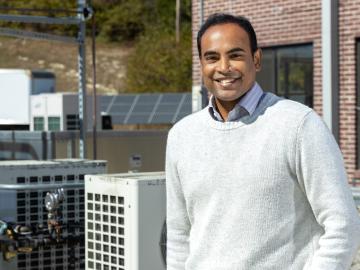
Cheekatamarla is a researcher in the Multifunctional Equipment Integration group with previous experience in product deployment. He is researching alternative energy sources such as hydrogen for cookstoves and his research supports the decarbonization of building technologies.
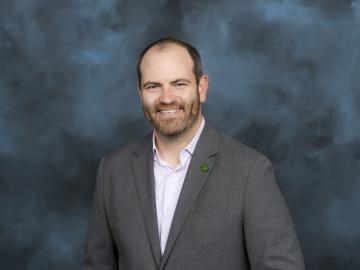
ORNL's Scott Curran, group leader for Fuel Science and Engine Technologies Research, has been named a fellow of SAE International and ASME.
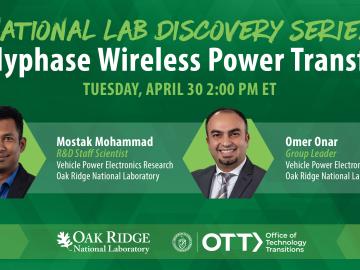
ORNL’s Omer Onar and Mostak Mohammad will present on ORNL's wireless charging technology in DOE’s Office of Technology Transitions National Lab Discovery Series Tuesday, April 30.


